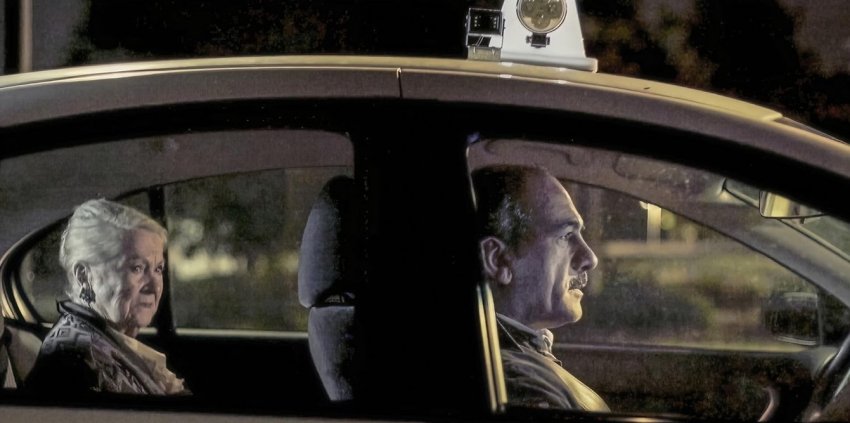
Damage
Written, directed and produced by Madeleine Blackwell
2020
80 minutes
Damage, written and directed by Australian filmmaker Madeleine Blackwell, is a moving allegory about the destruction caused by war and the increasing alienation suffered by an elderly woman, seemingly isolated from her family in a capitalist society lacking support for those most in need.
Filmed entirely in Adelaide, it features two key characters, taxi-driver Ali (played by Ali Al Jenabi) and passenger Esther (played by Imelda Bourke). Esther is 88 years old and losing her memory.
Al Jenabi (an Iraqi asylum-seeker in real life) and Bourke (the playwright’s mother) are non-professional actors, who nevertheless do an amazing job portraying their contrasting characters.
The film opens with Ali, a refugee on a temporary visa, who is driving a taxi using another man's licence, in order to survive. Ali relies on GPS to find his way around a city he doesn’t know. Esther enters his taxi late one night, but can't remember the address of the place she wants to go to. This immediately sets up a tension, which initially rises as Esther makes racist remarks toward Ali.
Esther and Ali travel through the night in search of a vague destination while surveillance cameras mark their journey. The overwhelming presence of security cameras inside the taxi and all around the city is counterposed to scenes from the famous Wikileaks Collateral Damage video exposing the massacre of Iraqi civilians by United States troops.
Ali, who is suffering PTSD from his experiences in Iraq, and now as a refugee in Australia, explains to Esther later in the film that people should not be surprised that asylum seekers seek to escape to Australia, after it was deeply involved in invading and destroying his homeland.
Al Jenabi has been living in Sydney for more than 15 years on a bridging visa. His own experience is centred in Robin de Crespigny’s award-winning book, The People Smuggler'. It has been published twice by Penguin and won the Queensland Literary Award and the Human Rights Book Awad in 2012.
Bourke — who passed away after the film was completed — was a well-known jazz singer in Adelaide. As Blackwell noted: "The use of non-actors is central to the concept of the film; both Ali and Imelda used their own lives as resources for an invented narrative. The initial script was written by [myself], but became a flexible structure as the actors played with improvisation to develop a complicity in story-telling, which is full of vitality and almost brings the screen to life."
Ironically, as the film develops, and Ali manages with great difficulty to find the house Esther is seeking, the two unlikely characters find a personal connection and even mutual humour. The other side of the dark and violent world Damage depicts is the deep humanity which seeks to counteract a capitalist society based on war and oppression.
Blackwell sums it up well with her conclusion that "Damage took five years and a deeply committed team to create. It is a truly independent feature that expresses the importance of humanity and hope in a world where war is becoming the norm and fear of the refugee a symptom."